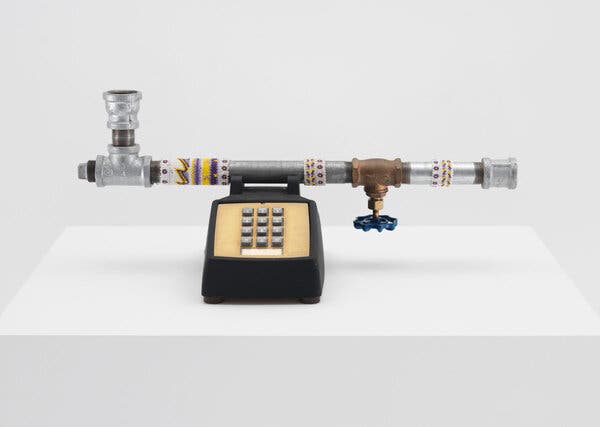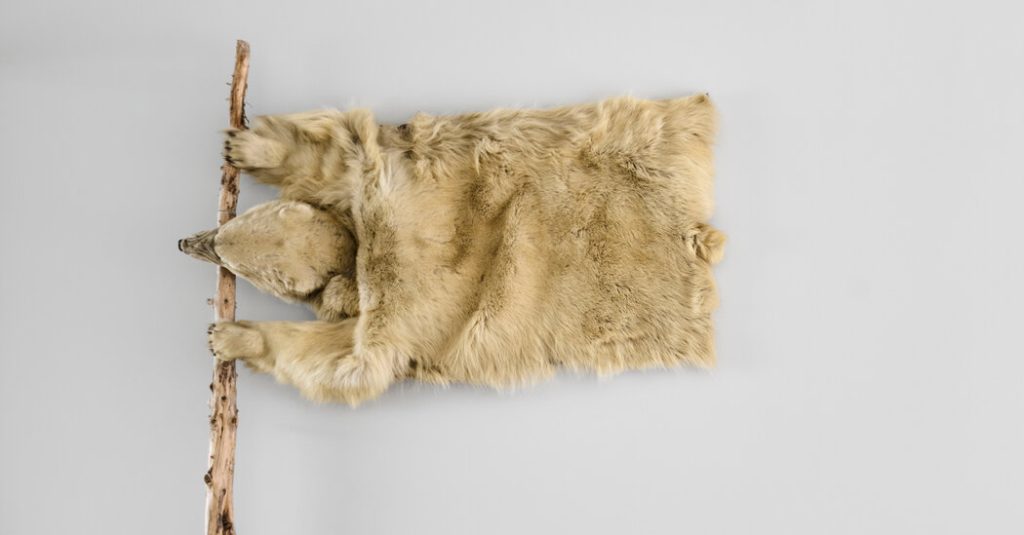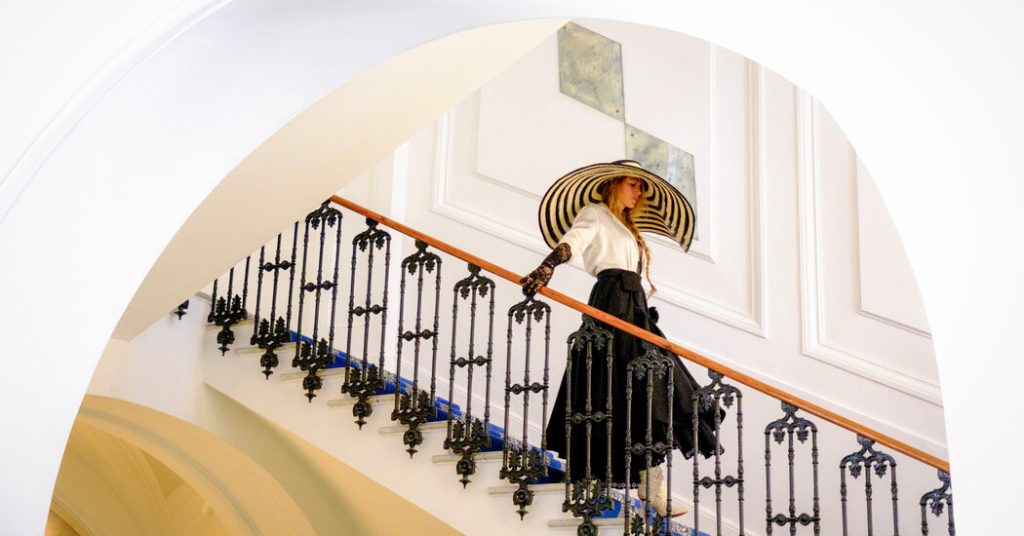In the Hudson River Museum, landscape is usually a celebration: grand, idealized and comfortably distant. The river bends picturesquely; the skies flush with sunset pinks; the forests remain untamed. It’s an aesthetic shorthand that still shapes how we mostly see the land: as backdrop, as bounty, as beauty.
Along with this view is another, where the terrain is splintered and rust-streaked, its scars reworked into irony. Not Thomas Cole’s wilderness or the Hudson River School’s frontier, it reflects a messier America, where landscape is both home and battleground. An America where Sacagawea graces coins as a unity symbol — while settlers keep the deeds.
“Smoke in Our Hair: Native Memory and Unsettled Time,” on view through August, boldly corrects the romanticism usually lining these museum galleries. The exhibition was curated by Sháńdíín Brown, a graduate student at Yale, and features 22 Native artists who rewrite the land as contested, communal and charged with memory. Brown is part of a new wave of curators including Amber-Dawn Bear Robe, Darienne Turner and Kalyn Fay Barnoski, who reframe Native art not as artifact but as argument.
The title, from a poem by the Tohono O’odham linguist Ofelia Zepeda, clings like juniper on skin. Smoke, she writes, travels deep into memory, lingering in hair and clothing — a scent you carry with you.

James Luna (Payómkawichum, Ipai and Mexican), “Hi-Tech Peace Pipe,” 1992. Pipes, beads and telephone.Credit…via Gochman Family Collection
In the American fable, Indigenous people are cast as side characters to innocent explorers fulfilling Manifest Destiny. In museums, art by Indigenous people has been seen as artifact, not intervention or complex storytelling — reduced to dream catchers, headdresses and pottery, repackaged for nostalgia and sale. Meanwhile, the land that once held the homes of Indigenous people is rendered scenic, lush and anonymous. The Native scholar Vine Deloria Jr. in his seminal book “Custer Died for Your Sins” put it this way: “To be an Indian in modern American society is in a very real sense to be unreal and ahistorical.”







